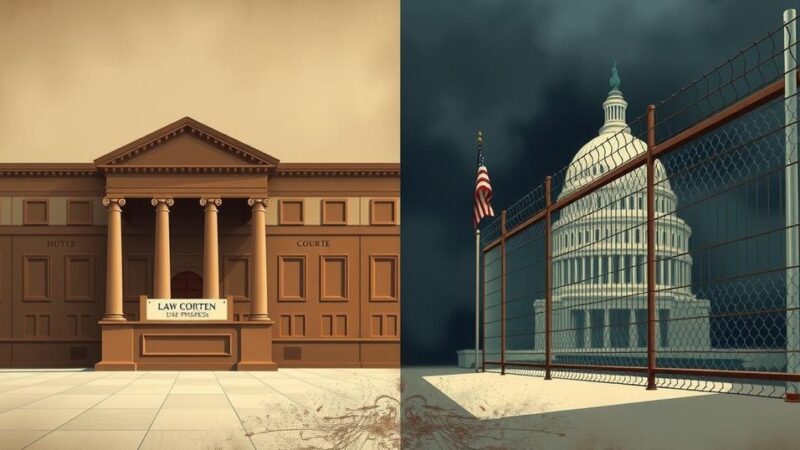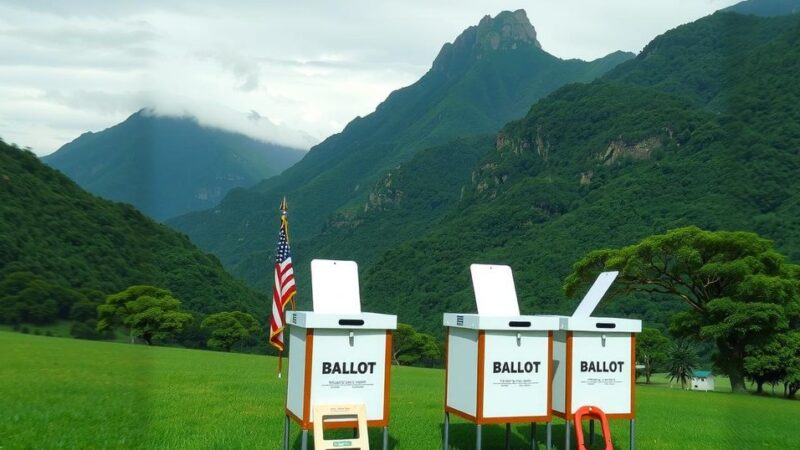Yamandu Orsi was sworn in as president of Uruguay, returning the country to leftist leadership after five years of center-right governance. During his inauguration, he emphasized the importance of democracy and welfare and vowed to address pressing social issues while maintaining economic stability. His presidency will confront internal coalition challenges and growing social demands amidst a divided parliament.
Yamandu Orsi was inaugurated as the president of Uruguay on Saturday, marking a return to leftist governance after five years under center-right administration led by Luis Lacalle Pou. His ascension occurs as Uruguay commemorates four decades of continuous democracy, a significant milestone for the nation of 3.4 million. In his inaugural address, Orsi emphasized the close relationship between democratic health and standards of living.
Orsi, aged 57, expressed admiration and gratitude towards his mentor, former president Jose “Pepe” Mujica, who lent support during his campaign despite facing serious health challenges. He is committed to maintaining a stable economy, addressing drug-related crime, and promoting sustainable, humane development throughout his five-year term. Additionally, Orsi’s presidency follows a long history, being the ninth president since Uruguay transitioned from a 13-year civil-military dictatorship that left lasting impacts on society.
His supporters expressed optimism, hoping for improvements in the social and security situations that have reportedly declined in recent years. Polls indicate Orsi holds a 44 percent favorable rating among voters at his inauguration, which was attended by representatives from over 60 countries. In a display of solidarity, he hosted fellow leftist leaders from Brazil, Chile, and Colombia at a celebratory gathering.
Orsi will govern with a divided parliament, as his Broad Front coalition has only secured control of the Senate. Experts suggest his biggest challenge may arise from internal coalition dynamics, which could test his negotiating abilities. Additionally, he faces the significant task of responding to social needs while managing a budget deficit, all amidst economic forecasts hampered by drought conditions affecting growth estimates.
In conclusion, Yamandu Orsi’s inauguration represents a pivotal moment for Uruguay as it transitions back to leftist leadership. With a commitment to uphold democratic values, address pressing social issues, and ensure economic stability, Orsi faces both opportunities and challenges as he embarks on his presidency. His previous ties to influential political figures and broad support from the electorate signify a hopeful beginning for his administration.
Original Source: www.rfi.fr






